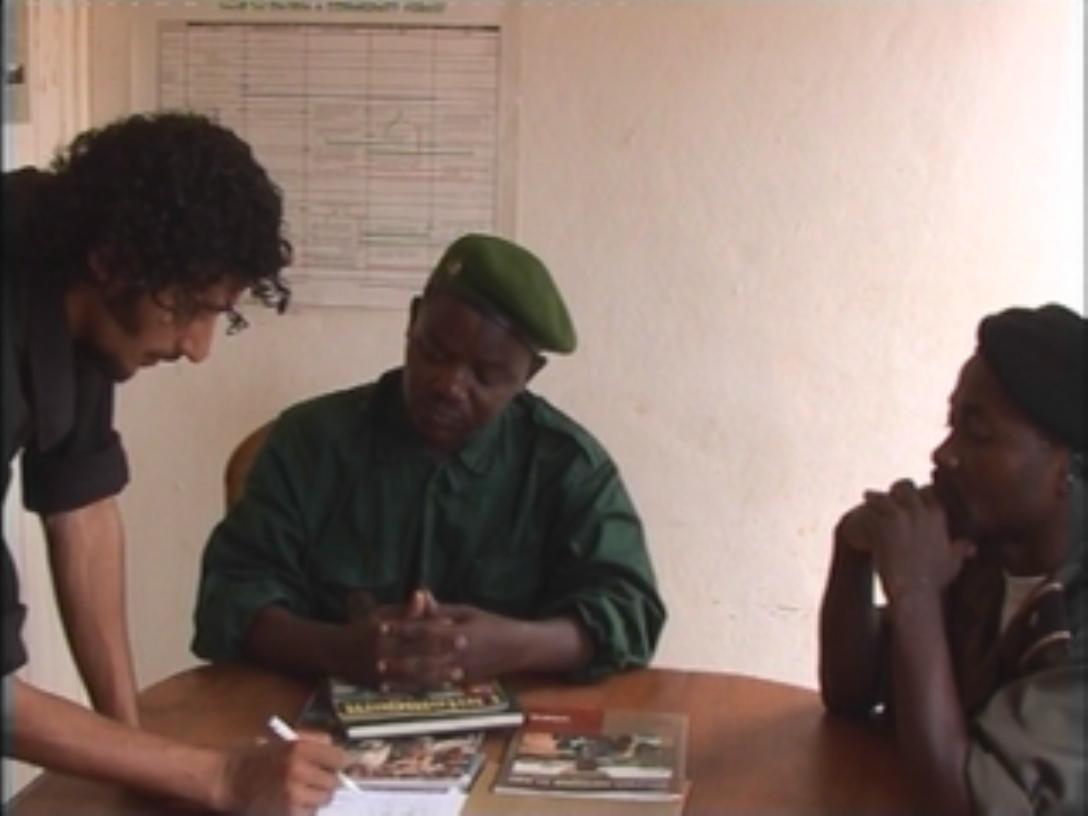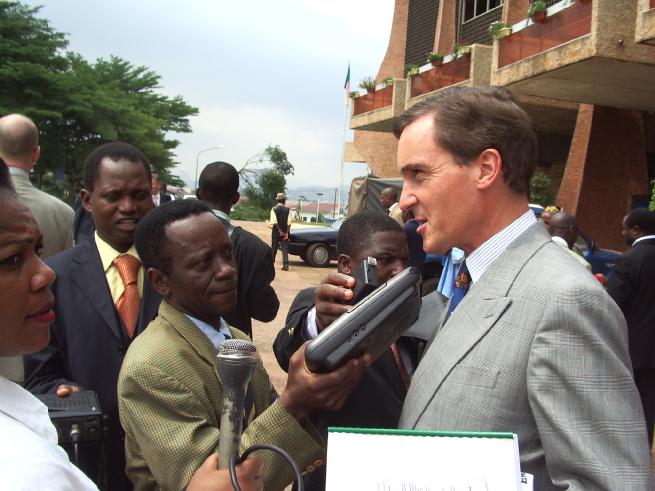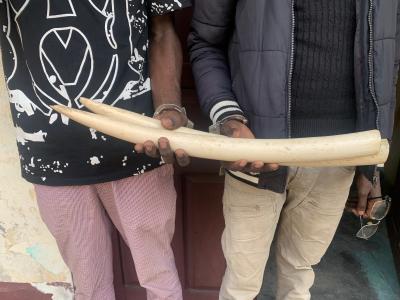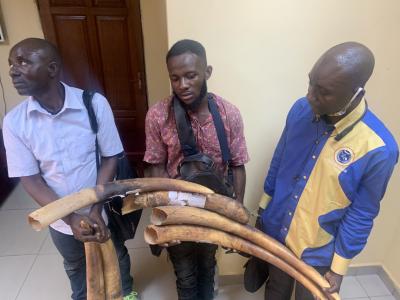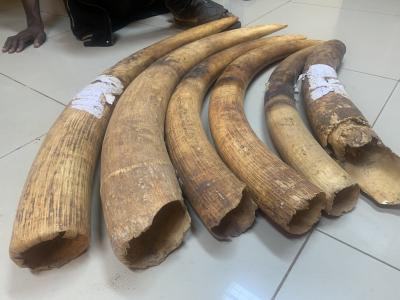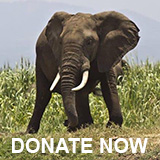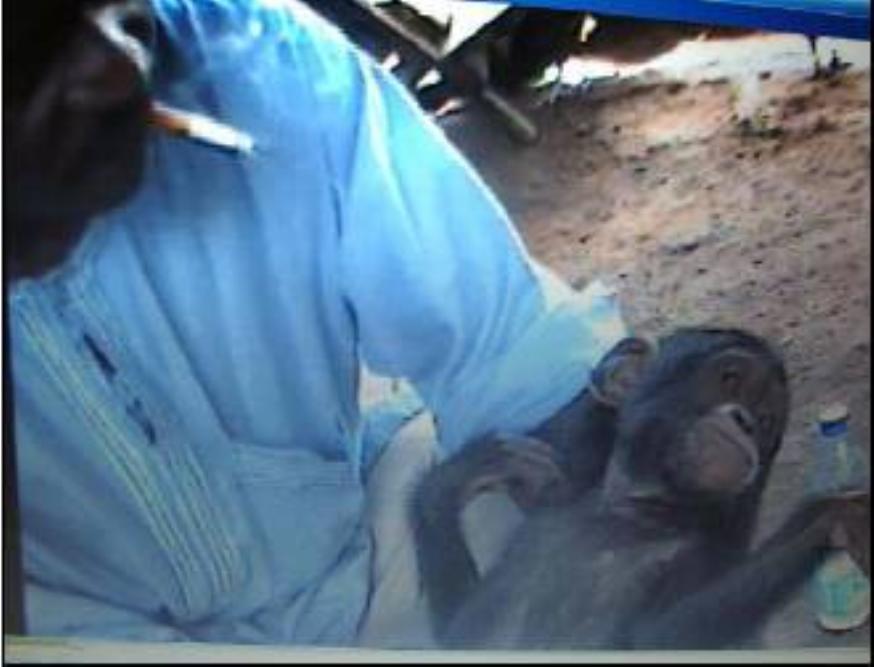 Investigators, undercover agents and informers gather precise information so that dealers in meat and the products of threatened species can be arrested in the act, producing concrete evidence for the courts.
Investigators, undercover agents and informers gather precise information so that dealers in meat and the products of threatened species can be arrested in the act, producing concrete evidence for the courts.
LAGA technically assists MINFOF and the Forces of Law and Order to arrest violators and to channel complaint reports to the courts. LAGA closely supervises operations in the field.
LAGA formed a legal team to assist in the administrative procedures of prosecuting the first wildlife cases known in the courts of Cameroon.
LAGA puts newsflashes into national TV news, national radio news and written press concerning the success of the operations and positive court rulings. The Cameroonian media informs the public that the law is actively enforced, thereby achieving education of the public on the change, increasing deterrent, and classification of the illegal trade in endangered wildlife as criminal.
LAGA is the first Wildlife Law Enforcement NGO in Africa and unique in the world in its approach and activities, working in close collaboration with Governments.
LAGA started with a baseline of Zero prosecutions under the wildlife law in almost all the countries of West and Central Africa. Zero is quite a strong baseline that was kept stable for a decade with existence of sufficient laws.
Today LAGA has built legitimacy for a new model of interaction between an NGO and Government. Seven months after its registration LAGA brought about the first wildlife prosecution in Cameroon. From 2006, every week a major illegal wildlife dealer has been arrested, around 87% of these are behind bars from the moment of arrest with no bail granted. Prosecutions are satisfying and have reached the maximum jail term of 3 years. Damages awarded have reached $200,000 for a wildlife case. Media efforts result every year in 365 media pieces put on TV, radio and written press - one per day.
The Government of Cameroon is one of the few parties of CITES (the UN Convention on Trade in Endangered Species) to include an NGO on the delegation and went further to nominate LAGA for the Bavin international Award. An award LAGA received by the Secretary General of the convention
LAGA was commended for its achievements in wildlife law enforcement and for its impact in the larger context through various recommendation letters.
EAGLE Network
Experience from Cameroon has proven that enforcing existing wildlife laws and providing measurable standards for the effectiveness of the enforcement, that is the number of significant wildlife traffickers arrested and serving a deterring punishment, is possible. Unfortunately baseline for this indicator is still zero in many countries in the Central and Western African Sub-regions highlighting the need for the extension of the LAGA model. The model has already been set up in eight other countries, forming EAGLE Network, starting with the PALF project in Congo Brazzaville and AALF project in Gabon under the NGO Conservation Justice. AALF-B operates in Benin since 2014 under Nature Tropicale, EAGLE Togo, EAGLE Senegal and EAGLE Côte d’Ivoire are the latest members of the Network. Meanwhile, Uganda and Burkina Faso are in the process of preparation.
The LAGA - MINFOF Collaboration
The Last Great Ape organization (LAGA) was born because the survival of Africa’s great apes demanded urgent action. Without it, the great apes and many other endangered species will soon become extinct. LAGA was registered in Israel in December 2002 and operates in Cameroon. It is a field-based organization designed to establish the effective enforcement of local wildlife law that is critical to the survival of the threatened animals.
The Cameroonian Ministry of Forestry and Wildlife (MINFOF) made the courageous decision to go ahead with a pilot project in collaboration with LAGA. The collaboration seeks to create a successful model that will provide the missing ingredient in the wildlife conservation formula: creating a deterrent factor.
LAGA is the first specialized Law Enforcement NGO in the sub-region. It focuses on threatened species and mainly on the dealers, the primary generators of the illegal bushmeat business, the ivory trade and the pet trade.
Activity report February 2025
Annual report 2024
Activity report December 2024
Activism
The LAGA Family is less than a dozen activists. An NGO without a single vehicle. In a world of multi-nationals among the conservation industry giants, LAGA is proud to be small and slim. Follow this link

